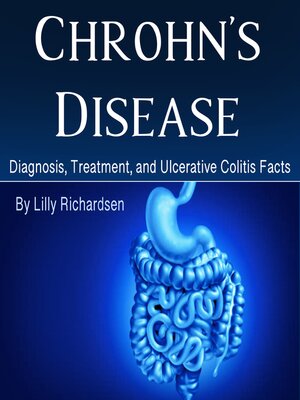Crohn's Disease
audiobook (Unabridged) ∣ Diagnosis, Treatment, and Ulcerative Colitis Facts
By Lily Richardsen

Sign up to save your library
With an OverDrive account, you can save your favorite libraries for at-a-glance information about availability. Find out more about OverDrive accounts.
Find this title in Libby, the library reading app by OverDrive.



Search for a digital library with this title
Title found at these libraries:
| Library Name | Distance |
|---|---|
| Loading... |
Crohn's disease is a chronic inflammatory bowel disease (IBD) that can affect any part of the gastrointestinal (GI) tract, from the mouth to the anus. It is characterized by inflammation, which can cause a range of symptoms such as abdominal pain, diarrhea, fatigue, and weight loss. The condition is named after Dr. Burrill Crohn, who, along with his colleagues, first described it in 1932. Crohn's disease affects people of all ages, but it is most commonly diagnosed in individuals between the ages of 15 and 35.
The cause of Crohn's disease is not entirely understood, but it is thought to result from a combination of genetic, environmental, and immune system factors. Genetic predisposition plays a significant role, as individuals with a family history of Crohn's disease are more likely to develop it. Environmental triggers such as diet, infections, and stress may also contribute to the onset or worsening of the disease. Additionally, the immune system's abnormal response to the presence of normal gut bacteria is believed to be a key factor in the disease's development.
The prevalence of Crohn's disease varies across different populations, with higher rates observed in developed countries, particularly in North America and Europe. The incidence of Crohn's disease has been increasing over the past few decades, although the reasons for this rise remain unclear. It is also more common among individuals of Ashkenazi Jewish descent, suggesting a potential genetic component.







